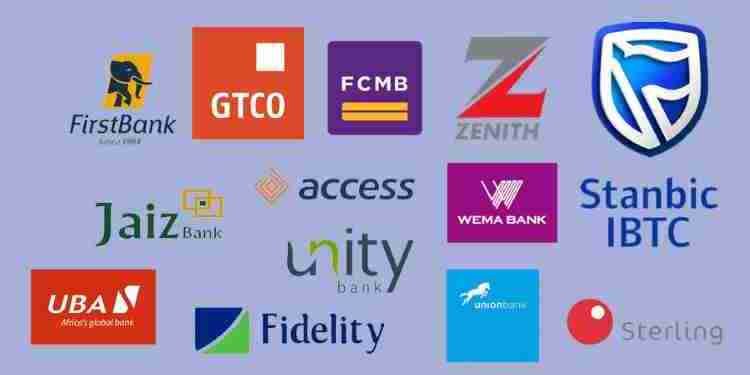GT Banks, FCMB, 11 other banks need N3.31trn to meet CBN threshold

The Central Bank of Nigeria (CBN) has increased capital requirements for commercial banks, and 13 lenders are expected to raise around N3.31 trillion in new capital over the next two years.
The current share capital plus premium of these banks as of 2023 stood at N1.98 trillion, according to the data compiled from their full year and nine-month financial statements.
The banks are expected to increase their total capital to N5.30 trillion, based on the CBN circular.
The CBN, on Thursday, set the minimum capital requirements for banks as follows: N500 billion for those with international authorisation, N200 billion for commercial banks with national authorisation, and N50 billion for those with regional authorisation.
Merchant banks now have a minimum capital requirement of N50 billion, while non-interest banks holding national and regional authorisation must have N20 billion and N10 billion, respectively.
Access Holdings currently has N251.81 billion in share capital plus premium, leaving N248.19 million to be raised to meet the CBN threshold.
Already, the parent company of Access Bank has unveiled plans to establish a capital raising programme of up to $1.5 billion or its equivalent. The programme aims to enhance the group’s financial strength through the issuance of various financial instruments such as ordinary shares, preference shares, alternative Tier 1 capital, convertible and/or non-convertible debt, bonds, or other capital and/or funding instruments.
Among the tier-one banks, the United Bank of Africa is expected to raise the largest sum, amounting to N384.19 billion, to fulfil the new CBN recapitalisation requirement. Currently, it possesses N115.82 billion in share capital plus premium.
FBN Holdings currently has a share capital and premium of N251.34 billion and needs to raise N248.19 billion.
Guaranty Trust Holding Company currently has N138.87 billion, according to its financial statements for the first nine months of 2023, and will need about N361.81 billion to meet the new requirement.
Zenith Bank currently has N270.74 billion and will need to raise over N200 billion.
Ecobank Transnational Inc., a tier-two bank with international authorisation, requires the smallest amount to be raised. It currently holds N353.51 billion in share capital plus premium, with N146.48 billion left to meet the new requirement.
FCMB and Fidelity Bank currently have N125.29 billion and N129.71 billion respectively and will both need over N370 billion.
Stanbic IBTC and Sterling Bank are national banks and are required to have N200 billion. They currently have a share capital of N109 billion and N57.154 billion respectively. Wema and Unity have N15.12 billion and N16.33 respectively and need N184.87 billion and N183.66 billion.
Unity Bank operates internationally therefore requires N351 billion as its share capital stood at N148 billion as of September 2023.
Ayokunle Olubunmi, head of financial institutions ratings at Agusto Consulting, said the CBN’s mandate implies that all banks must raise additional capital, as none currently meet the required threshold based on paid-up capital alone.
He said Nigerian banks have avenues beyond domestic sources to secure funding, including foreign investors.
Recognising the importance of the banking industry in Nigeria, Olubunmi anticipates that meeting the recapitalisation targets should be relatively feasible, though he acknowledged the substantial financial commitment required.
In light of the stringent regulations, he expects potential shifts in the banking landscape, including mergers, acquisitions, and the formation of larger banking entities.
Ayodele Akinwunmi, relationship manager, corporate banking at FSDH Merchant Bank, said it is a right policy that will position the banking system to enable it to support the Nigerian economy better.
According to him, it is also an avenue to bring foreign investors to the Nigerian economy and to attract the much-needed foreign exchange which will lead to the appreciation in the value of the naira.
“The banking sector is an attractive sector of the Nigerian economy and discerning foreign investors who are looking for where to deploy their capital for good return and with strong growth potential will look at the Nigerian banking sector,” he said.
Muda Yusuf, chief executive officer of the Centre for the Promotion of Private Enterprise, said the recapitalisation is in order because the last major one was in 2004.
“As at that time, the capital base for national banks was N25 billion, which was about $190 million and the exchange rate was about N130/$. That $190 million today is equivalent to N250 billion. When you look at the value of money, you will find the justification for the review. In real terms (adjusted for inflation), there’s no real increase. In order to ensure the banks remain stable and can absorb shocks, and to ensure banks do not pose any risks to the financial system, recapitalisation is in order,” he said.
Uche Uwaleke, professor of Capital Market at the Nasarawa State University Keffi, described the recapitalisation as a welcome development that will help strengthen the country’s financial system and a potential boost to the stock market.
“In view of naira devaluation following the unification of exchange rates, the new calibrated minimum capital requirements seem okay unlike the uniform capital base of N25 billion stipulated in 2004,” he said, pointing out that shareholders’ funds comprise paid-up share capital plus reserves.
He said the total shareholder’s funds were permitted in 2005 but now disallowed possibly from the experience of the last exercise.
“I believe the FUGAZ (FBN, UBA, GTB, Access and Zenith) banks with international authorisation will have no difficulty meeting this requirement,” Uwaleke said. “The stock market (option 1) presents the most feasible option as few will likely go the mergers and acquisition route. I also think the two years period allowed is sufficient to implement recapitalisation.”
He said since the new capital base is based on the type of authorisation, the CBN may consider applying a differentiated cash reserve ratio according to the category of licence instead of a uniform rate (currently 45 percent) for commercial banks.
(Business Day)
